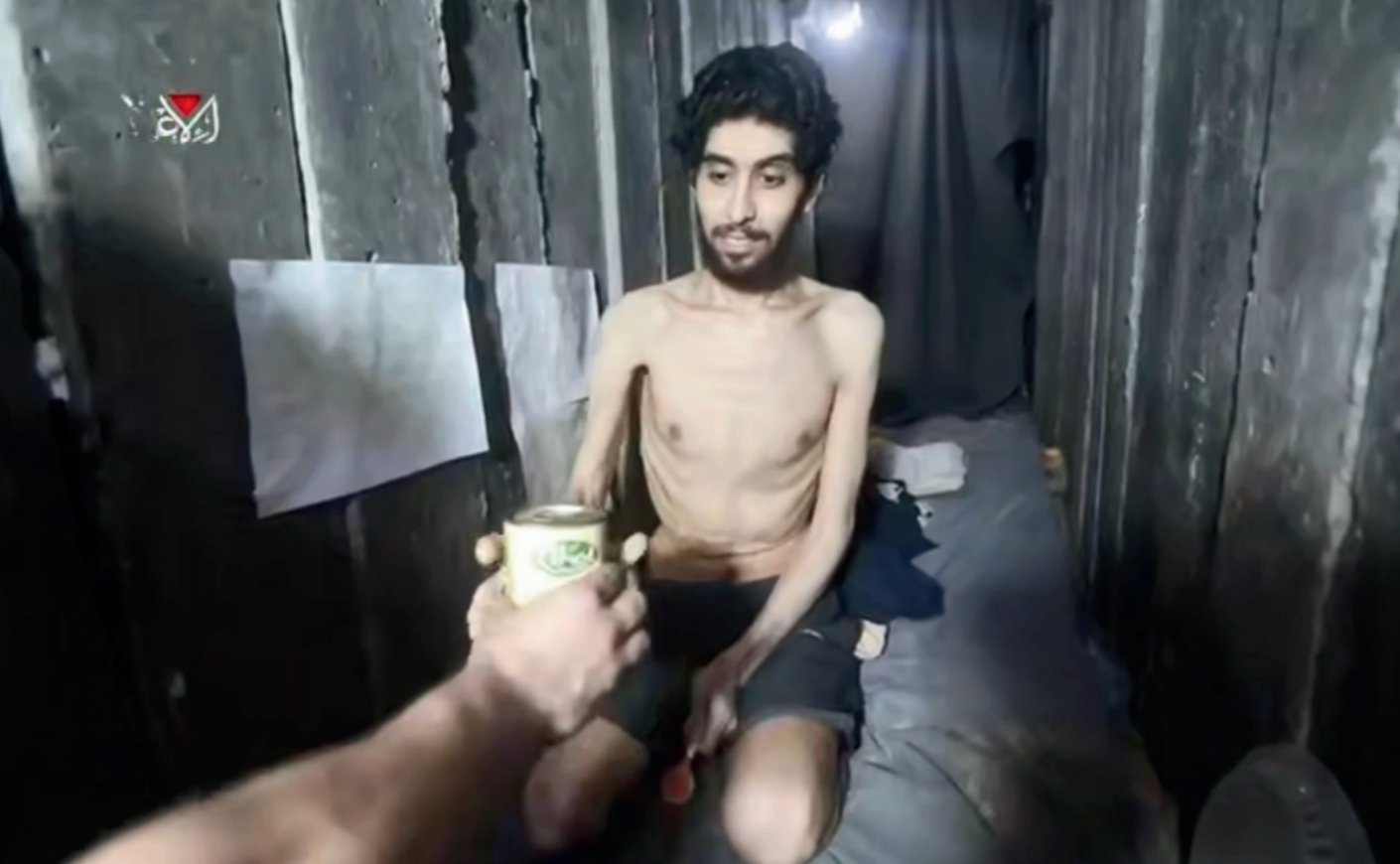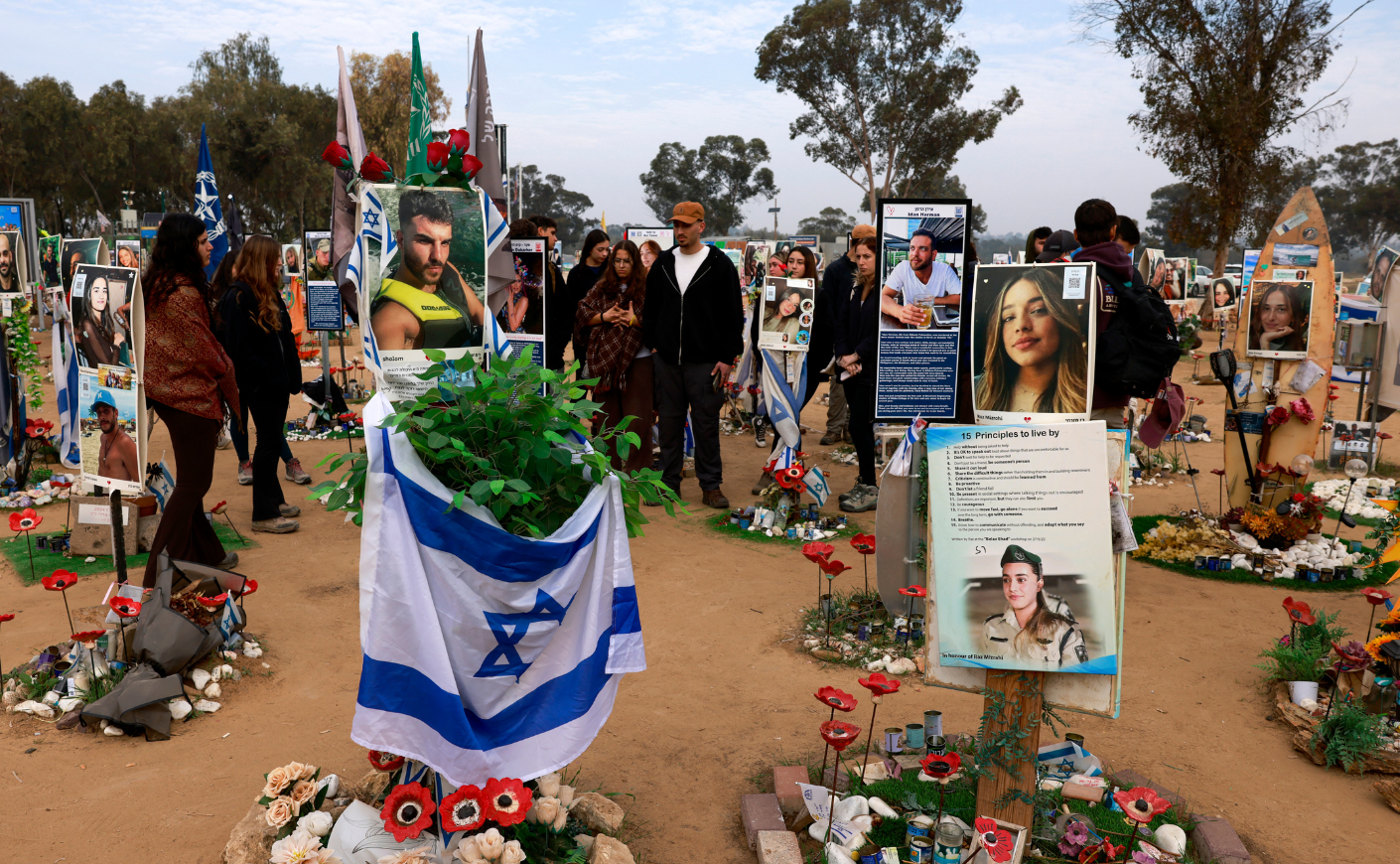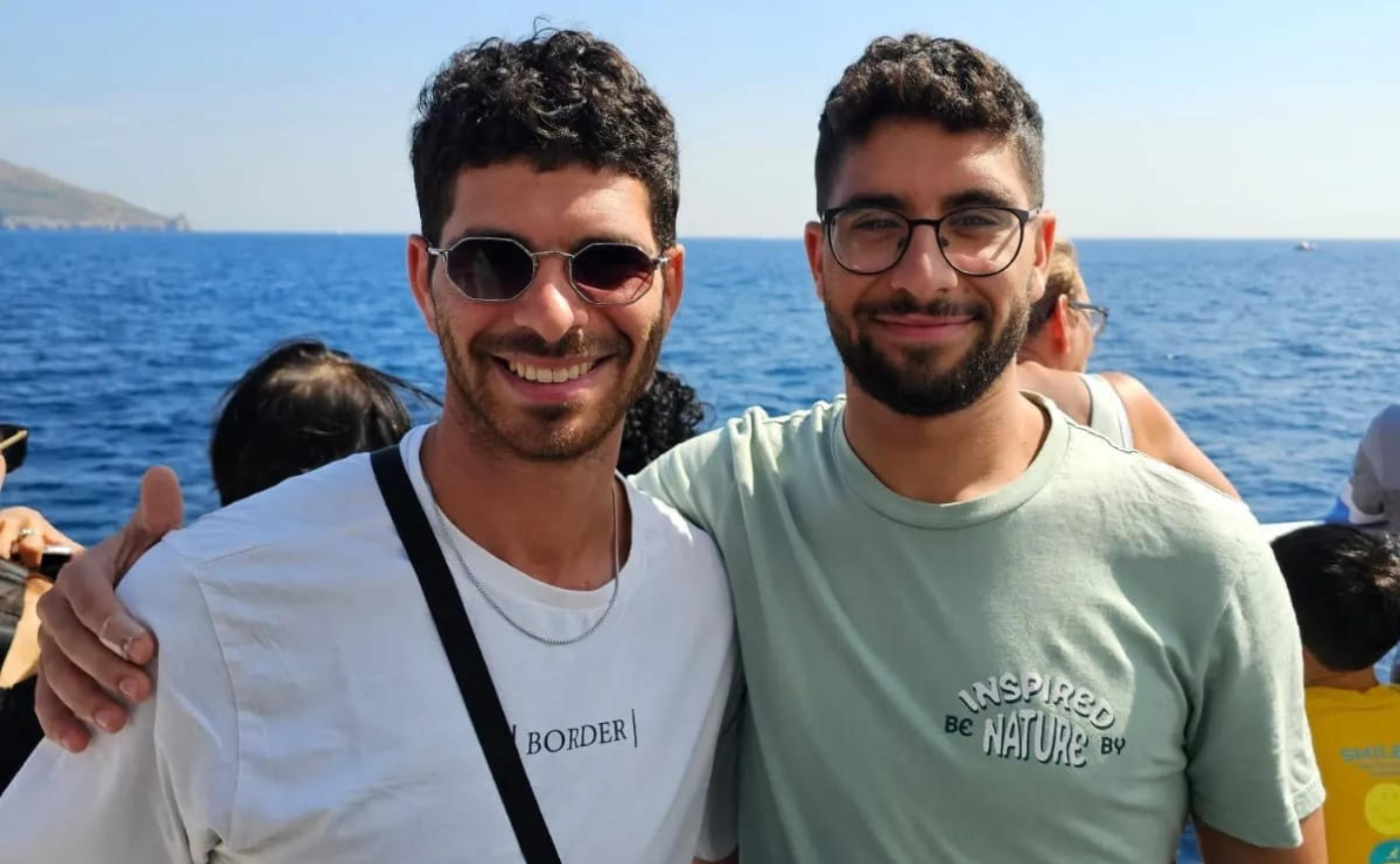For nearly two years, Ilay David has woken up every day waiting for news about his brother, Evyatar, one of the young Israelis taken hostage by Hamas during the Nova music festival massacre on Oct. 7, 2023.
Now, as reports of a possible hostage deal gains traction, David says something feels different — a flicker of real hope breaking through months of fear, grief, and exhaustion. But that hope, he admits, is fragile.
Even with talk of a breakthrough, obstacles stand in the way of peace. Hamas has not agreed to several core terms in President Trump’s 20-point proposal — most notably Israel’s demand that the group disarm, a red line for Israeli Prime Minister Benjamin Netanyahu. It has also reportedly signaled a desire to alter parts of the deal, including stronger assurances about Israel’s withdrawal from Gaza.
In a conversation with Katie Couric Media, David opened up about the faith that keeps him going, his skepticism of the mediators involved, and the unbreakable bond he shares with his brother — one rooted in music, memory, and love that endures even in the darkest places.
Katie Couric Media: What was your immediate reaction when you heard Hamas had agreed to release all hostages, pending conditions?
Ilay David: I thought it was kind of obvious that Hamas wouldn’t just say, “Okay, we accept everything in this plan.” They didn’t agree to key features in Trump’s agreement.
We have to make sure that the first point — releasing all hostages within 72 hours — is launched as soon as possible. That’s what gives me the most hope right now: the fact that we’re talking about a comprehensive release of all hostages before anything else.
You can actually feel something different this time. The air is different. It feels like a real resolution.
Have you or your family received any communication from officials about your brother or the hostage release?
We do have some connection to the government, and they’re trying to be as transparent as they can. But the situation is extremely sensitive right now, and we truly don’t know what’s happening behind the scenes. But again, there’s a sense of optimism, and I haven’t felt that in a very, very long time.
What does hope look like for you right now?
I’ve met a lot of American officials in the seven months since President Trump entered office in January. I see how laser-focused the American government is on ending the war and releasing all hostages. That gives me hope — they’re not giving up. I know Evyatar is in very, very bad shape right now. We saw him two months ago in one of Hamas’ propaganda videos. He was skin and bones, very weak.
They torture him every day. They’re starving him to the point where he could die from malnutrition. But he still has faith — you can see it in his eyes.
Medical reports have been very clear. When doctors around the world saw that video, they said the only reason he’s still alive is because of his belief that this will end soon. So if he doesn’t give up, we don’t give up. Nobody can give up.
I also see survivors who were released six or seven months ago and who were held under the same conditions as my brother, who haven’t given up either. They’re fighting alongside us now and have become such a crucial part of our advocacy. Seeing them get up every morning and keep fighting after what they’ve been through gives me the strength I need.

For those who may not know, how was your brother taken hostage that day?
My brother went to the Nova festival with his friends. When the attack started, he ran to a bomb shelter to hide from the missiles. During the first hour and a half, my family didn’t know terrorists had reached the festival, and neither did my brother. Unfortunately, rocket attacks on Israel are so common that we weren’t too worried at first. Evyatar was calm, as always — that’s just who he is. He told us, “Don’t worry, I’m on my way. The party’s over. We’re leaving. Everything’s fine.”
But around 8:00 a.m., about an hour and a half after the attack began, we lost contact with him completely. His friend’s connection went dead too. Some of their friends managed to reach their parents and said they were hiding from terrorists. They could hear gunshots, explosions, and yelling in Arabic. We couldn’t go there to help. We had no idea what was happening.
Then, around 2:00 p.m., we started seeing videos on Telegram. Hamas had broadcast footage of Evyatar and his best friend, handcuffed and bruised inside a dark cell with other hostages. It was one of the first hostage videos released. They made sure we would recognize their faces.
In a way, we were “lucky” — we were one of the few families who knew what had happened to our loved one. Most didn’t. We couldn’t believe Evyatar had been kidnapped. I thought of the obvious scenarios — maybe he’d been killed, or maybe he escaped, but never that he’d been taken. And ever since we learned he was alive, we’ve been fighting for his safe return.
What do you believe are the biggest challenges standing in the way of your brother’s release?
Hamas is the main obstacle, though I do think Qatar has real power. They can make Hamas act, as we saw with the release of Edan Alexander. If Qatar decides those hostages need food, medical care, or Red Cross access, it will happen. I’m just not sure Qatar is interested in doing that.
Of course, the politics inside Israel are influencing things, too. And beyond that, there are many hostile entities in the region, like Iran, that are also affecting the situation. These are all obstacles in their own ways.
What do you want Israel and the international community to do right now to make sure this deal actually goes through?
That’s the million-dollar question. We need to use every tool in our arsenal — military, economic, and political — to make sure this deal happens. Maintain full transparency, and offer every guarantee necessary to ensure the agreement goes through to the end.
What’s happening is a betrayal of humanity. As long as Hamas is holding both the living and the dead captive, they’re spitting in the face of democracy and Western values. We have to make it stop.
There’s something else I want to add: We must make sure that, until the moment they’re released, the hostages are being fed, cared for, and seen by doctors. Because if this deal collapses again, they may not survive. That’s my biggest fear right now.

Hamas previously released a disturbing video of your brother in captivity. From what you’ve heard, how is he doing?
He’s living a nightmare right now. He’s trapped in a filthy tunnel, a hundred feet underground, in complete darkness. He barely has water. His captors are abusive.
We’ve heard several testimonies from hostages who were held with Evyatar for hundreds of days and were released thanks to President Trump’s last deal. They described the same horrific conditions.
He’s just 24, turning 25 in December. I truly believe he’ll be with us to celebrate. He’s at that age when you’re supposed to travel, explore, and chase your dreams — and I think that’s what’s keeping him going. When he comes back, those dreams and goals will be a crucial part of his recovery.
You once said that you and Evyatar used to play music together every week — you on piano, him on guitar. What would it mean to play together again?
Music really became our connection. Last February, two hostages who had been held with Evyatar were released, and they came running to tell us what was happening down there. It was very important to Evyatar to send us messages, and one of them was for me. He said, “I just want to play music with you again, like we used to.”
For me, it’s the same. I just want to play music with him again. When that happens, I’ll know he’s home. I’ll know he’s okay. I’ll know everything is going to be okay.
Even though we have a long journey of healing ahead, I believe he’ll get better. We’ll be a better family. Israel will be a better nation. And we’ll keep fighting until he’s healthy.
Lastly, what sort of justice or accountability do you want to see for your brother?
I just want real peace. I don't know how it's going to happen, but I think anything else is just unacceptable.
This interview was edited for clarity and length.









